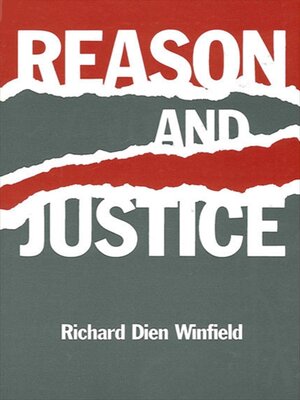
Sign up to save your library
With an OverDrive account, you can save your favorite libraries for at-a-glance information about availability. Find out more about OverDrive accounts.
Find this title in Libby, the library reading app by OverDrive.



Search for a digital library with this title
Title found at these libraries:
| Library Name | Distance |
|---|---|
| Loading... |
This is a finely argued, detailed, and comprehensive systematic theory of justice, brilliantly extending Hegelian ethics much as Rawls's Theory of Justice rehabilitated and extended classical Liberalism. Winfield argues that justice, like reason, must be self-grounding, and that to achieve this, it must be self-determined. The theory of justice must therefore abandon its appeal to metaphysically given or transcendentally constituted norms and instead determine the institutions of freedom. In pursuit of this task, Winfield offers insightful discussions of property relations, morality, the family, capital and commodity relations, economic and social justice, and the state. In contrast to Liberalism, which sees the state as instrumental to non-political ends, Winfield defends the democratic state as the just realization of freedom. Throughout, it is argued that justice is defined interactively, where one's freedom is determined by how one's interactions respect and foster the institutional freedom of others.
Although the author's arguments proceed systematically, at each stage he deals adroitly with the relevant major thinkers in the Western tradition-not only with Hegel, but with the ancients, the classical liberals, Marx, and contemporaries such as Rawls.







